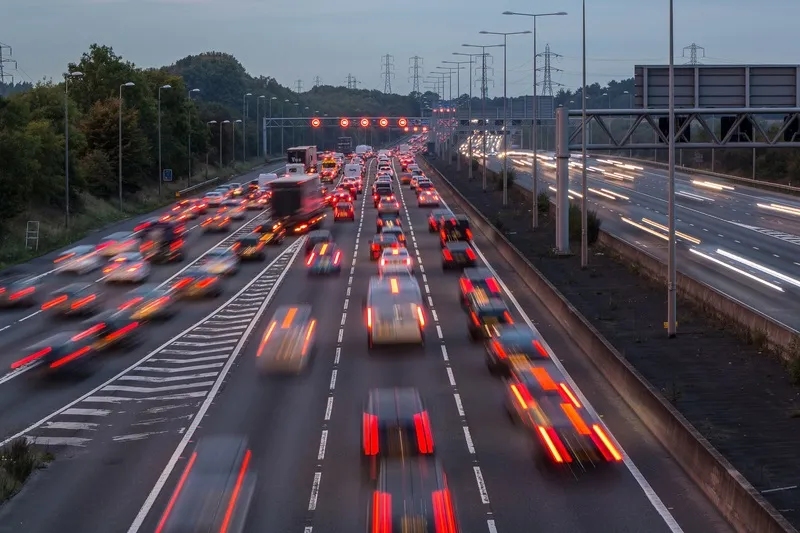The ‘Getting schooled in infrastructure’ campaign bus tour by the US Laborers' International Union of North America (LIUNA) began this week at the now-closed I-495 bridge in Wilmington.
The tour, intended to highlight LIUNA’s concerns about the country’s failing roads and bridges, will travel through more than 22 cities and Congressional districts in a bid to press Congress to pass a long-term, full-investment Highway Bill this year. The campaign also includes radio ads, billboards, online activity and g
June 17, 2014
Read time: 3 mins
The ‘Getting schooled in infrastructure’ campaign bus tour by the US Laborers' International Union of North America (LIUNA) began this week at the now-closed I-495 bridge in Wilmington.
The tour, intended to highlight LIUNA’s concerns about the country’s failing roads and bridges, will travel through more than 22 cities and Congressional districts in a bid to press Congress to pass a long-term, full-investment Highway Bill this year. The campaign also includes radio ads, billboards, online activity and grassroots action. LIUNA says if Congress does not act the nation's already failing roads and bridges will worsen.
The tour includes a real school bus which has been crushed and carries a prop resembling a large piece of a fallen bridge. "It's time to stop sugar-coating this issue," said LIUNA general president Terry O'Sullivan. "We are not trying to scare people, but we are trying to wake people and Congress up."
Last week, LIUNA released a national poll by Hart Research Associates, which uncovered the degree of concern most Americans have about their roads. About six in 10 say they worry about poor road conditions.
Four in 10 say they or someone they know has almost had an accident or lost control of their car due to poor road surfaces and 28 per cent say poor roads have caused an accident involving themselves or someone they know. And a striking 69 per cent say poor roads cost them in wear and tear on their cars – a "pothole penalty" that equates to US$324 a year for the average driver, according to the Transport and Innovation Research Portal (TRIP). Experiences and concerns are similar regardless of political party.
The Highway Bill authorises resources to be dispersed to states for roads and bridges from the Highway Trust Fund. The fund provides the largest share of transportation investment for most states. The fund is expected to begin running dry in about a month. And without action by Congress, the fund will completely stop dispersing road and bridge funds on 1 October.
Money for the Highway Trust Fund comes from the federal gas tax, which is in crisis because the 18.4 cent tax has not been adjusted for 21 years. Due rising construction materials costs and vehicle fuel efficiency, the tax has declined in value by 40 per cent during those 21 years.
"Congress has multiple, viable options to consider," O'Sullivan said. "But it is time to act. The most reliable, tested investment resource for our roads and bridges is the gas tax and adjusting it will give Americans what they want and need – safer roads and bridges in their states and communities."
LIUNA has been joined by a broad group, including the 54-million-member4939 AAA, the Chamber of Commerce, 5571 Building America's Future, and others – in its call to adjust the gas tax.
The tour, intended to highlight LIUNA’s concerns about the country’s failing roads and bridges, will travel through more than 22 cities and Congressional districts in a bid to press Congress to pass a long-term, full-investment Highway Bill this year. The campaign also includes radio ads, billboards, online activity and grassroots action. LIUNA says if Congress does not act the nation's already failing roads and bridges will worsen.
The tour includes a real school bus which has been crushed and carries a prop resembling a large piece of a fallen bridge. "It's time to stop sugar-coating this issue," said LIUNA general president Terry O'Sullivan. "We are not trying to scare people, but we are trying to wake people and Congress up."
Last week, LIUNA released a national poll by Hart Research Associates, which uncovered the degree of concern most Americans have about their roads. About six in 10 say they worry about poor road conditions.
Four in 10 say they or someone they know has almost had an accident or lost control of their car due to poor road surfaces and 28 per cent say poor roads have caused an accident involving themselves or someone they know. And a striking 69 per cent say poor roads cost them in wear and tear on their cars – a "pothole penalty" that equates to US$324 a year for the average driver, according to the Transport and Innovation Research Portal (TRIP). Experiences and concerns are similar regardless of political party.
The Highway Bill authorises resources to be dispersed to states for roads and bridges from the Highway Trust Fund. The fund provides the largest share of transportation investment for most states. The fund is expected to begin running dry in about a month. And without action by Congress, the fund will completely stop dispersing road and bridge funds on 1 October.
Money for the Highway Trust Fund comes from the federal gas tax, which is in crisis because the 18.4 cent tax has not been adjusted for 21 years. Due rising construction materials costs and vehicle fuel efficiency, the tax has declined in value by 40 per cent during those 21 years.
"Congress has multiple, viable options to consider," O'Sullivan said. "But it is time to act. The most reliable, tested investment resource for our roads and bridges is the gas tax and adjusting it will give Americans what they want and need – safer roads and bridges in their states and communities."
LIUNA has been joined by a broad group, including the 54-million-member










